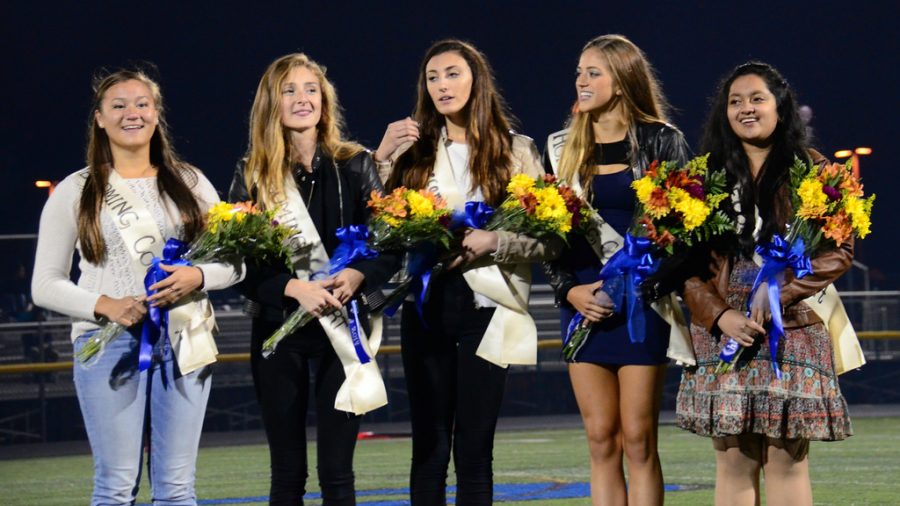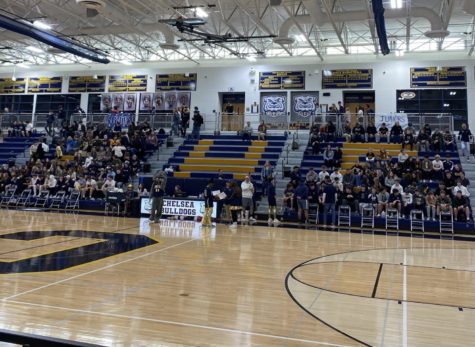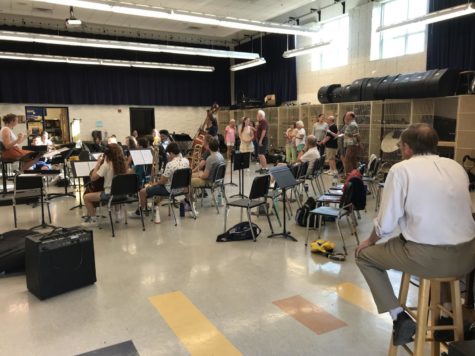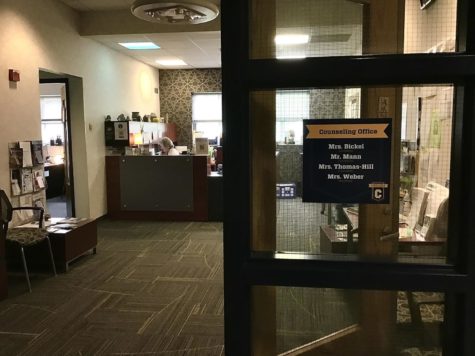Dethroned? Debate Over Homecoming Queen Continues
Now that homecoming is back on everyone’s mind, so is an old tradition, and it’s not the football game. Homecoming queen is back, and with it, controversy over whether or not we should continue with this custom, or if it should just be scrapped.
Teachers and students alike have shared their opinions through interviews as to what they believe on the topic. Mrs. Putnam told us that it can have both “positive and negative effects” on students, and that she’s seen it go both ways. She also said that the culture of a school really changes how people act toward the tradition. Putnam argues, while it can be a way for students to say how much they “value each other” and how much they mean, it can also be a bullying tactic. If a person is “voted for as a joke” then it can really hurt them. It really depends on how the voting is viewed, and she believes that because it was such a focus this year to vote for people for their “integrity and work ethic,” rather than more superficial qualities, that the culture behind it could change. She still disagrees with the tradition itself, however: “Do we need another thing to recognize the exact same talents that we recognize in five other ways?” Things like popularity are bound to affect it, and people who are “involved and outgoing with others” are more likely to receive votes, even though these talents and personalities are recognized in dozens of other ways. Perhaps the idea behind homecoming court isn’t necessary because it’s not entirely unique.
Students had a lot to say on the topic as well. We interviewed a few upperclassmen who have been through the process before. Sophomore Abby Zeller said that “it feels like a popularity contest” to her, and that sometimes it can act as a sort of bitter reminder to some people that they are “unpopular and unwanted.” Zeller said she felt the tradition was something that wasn’t bad to have, adding that “I think it should be less of a popularity/beauty contest… and focus more on who would be a good leader.”
Similar sentiments were expressed by fellow sophomore Riley Davis, who told us that, while the tradition has not personally affected her, she could imagine how it could impact others. She said that there were some negative effects of the tradition, but she didn’t believe it should be scrapped altogether; rather, she believes it can be improved. She thought the school could fix some of the more negative parts of the tradition by opening up the election process to all students and “[making] it less gender-focused.” Davis said she believes, for example, the school should make an effort to be more accepting to the transgender community. The tradition of electing homecoming queen reinforces gender norms, but Davis believes CHS can fix remedy this by “[including] all genders and make it more of a group, not just a queen, but a group of people that represent Chelsea.” So instead of a king and queen, Davis suggests the school elect several people per grade, regardless of gender, that exemplify what it means to be a Bulldog.
Homecoming queen is a time-honored tradition, but according to the school community, it is not a perfect one. Whether that means erasing the roles and having a group to represent the school, or entirely getting rid of the tradition, the Bulldog community seems strong on the idea that something has to change.
Your donation will support the student journalists of Chelsea High School. Your contribution will allow us to purchase equipment, cover our annual website hosting costs, and write more stories for you to read!

Matty's the “Cool Editor” and has been with the paper since her freshman year. She’s a senior who is too funny for her own good and spends almost...






Riley Scritchfield • Oct 6, 2017 at 12:46 pm
I agree that homecoming queen can seem like a popularity contest, and it is very strange that Chelsea holds separate dances for kings and queens. I, however, don’t think that homecoming should be scrapped, but rather we have homecoming king and queen together-in one dance. I do think it causes drama, and I try to stay out of the homecoming queen contest, but I think it is a fun tradition, and shouldn’t be scrapped.
Anne Findlay • Oct 6, 2017 at 12:42 pm
I have always hated the idea of Homecoming Queen and agree with Charles, it is definitely a popularity contest. While I believe that our nominees this year are very deserving of princess, I don’t understand why we have to even have this contest in the first place. Instead of calling out 16 of the best girls in the school and dragging down those who were not nominated, why not skip the whole tradition? Get volunteers for the pep rally, ditch the crown, and build up everyone’s confidence.
Charles Korner • Oct 6, 2017 at 8:13 am
I abstained from voting, and with all do respect, I encourage others to do the same. The tradition may be old, and time honored, but the endorsement of time is not what we’re looking for here. A popularity contest can be well meaning, but it’s just that, a popularity contest. Regardless of opinion, most people seem to recognize the useless drama and pain that the tradition creates, and if so why is it still around? Let the tradition die, I think we can all learn to value each other without a flawed annual vote.
Mrs. Putnam • Oct 5, 2017 at 10:18 pm
Thanks Maddie for capturing the conflicting feelings I have towards this tradition! I am very happy with the way you presented my answers to your interview. Very professional.